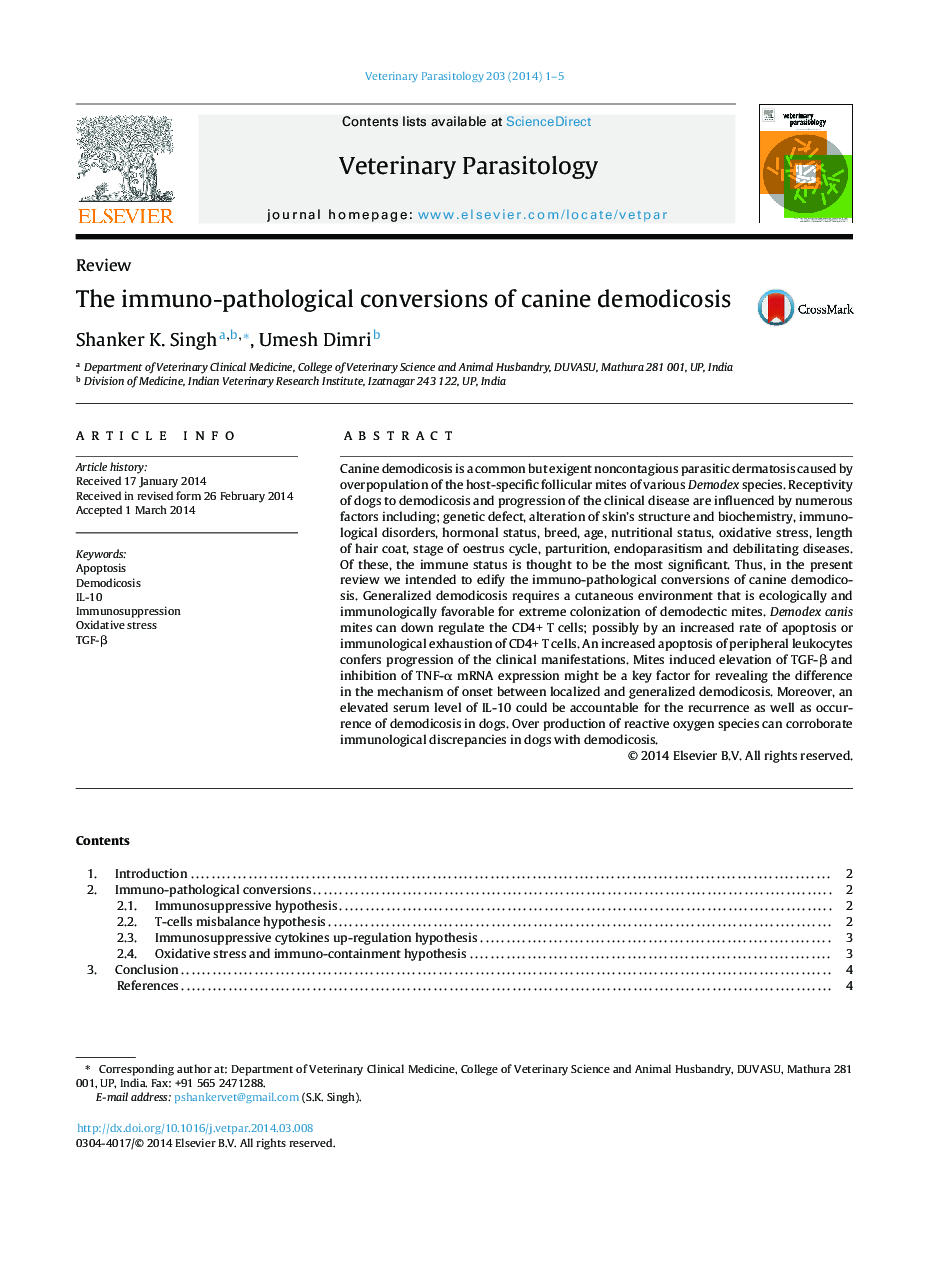| Article ID | Journal | Published Year | Pages | File Type |
|---|---|---|---|---|
| 5803319 | Veterinary Parasitology | 2014 | 5 Pages |
Canine demodicosis is a common but exigent noncontagious parasitic dermatosis caused by overpopulation of the host-specific follicular mites of various Demodex species. Receptivity of dogs to demodicosis and progression of the clinical disease are influenced by numerous factors including; genetic defect, alteration of skin's structure and biochemistry, immunological disorders, hormonal status, breed, age, nutritional status, oxidative stress, length of hair coat, stage of oestrus cycle, parturition, endoparasitism and debilitating diseases. Of these, the immune status is thought to be the most significant. Thus, in the present review we intended to edify the immuno-pathological conversions of canine demodicosis. Generalized demodicosis requires a cutaneous environment that is ecologically and immunologically favorable for extreme colonization of demodectic mites. Demodex canis mites can down regulate the CD4+ T cells; possibly by an increased rate of apoptosis or immunological exhaustion of CD4+ T cells. An increased apoptosis of peripheral leukocytes confers progression of the clinical manifestations. Mites induced elevation of TGF-β and inhibition of TNF-α mRNA expression might be a key factor for revealing the difference in the mechanism of onset between localized and generalized demodicosis. Moreover, an elevated serum level of IL-10 could be accountable for the recurrence as well as occurrence of demodicosis in dogs. Over production of reactive oxygen species can corroborate immunological discrepancies in dogs with demodicosis.
